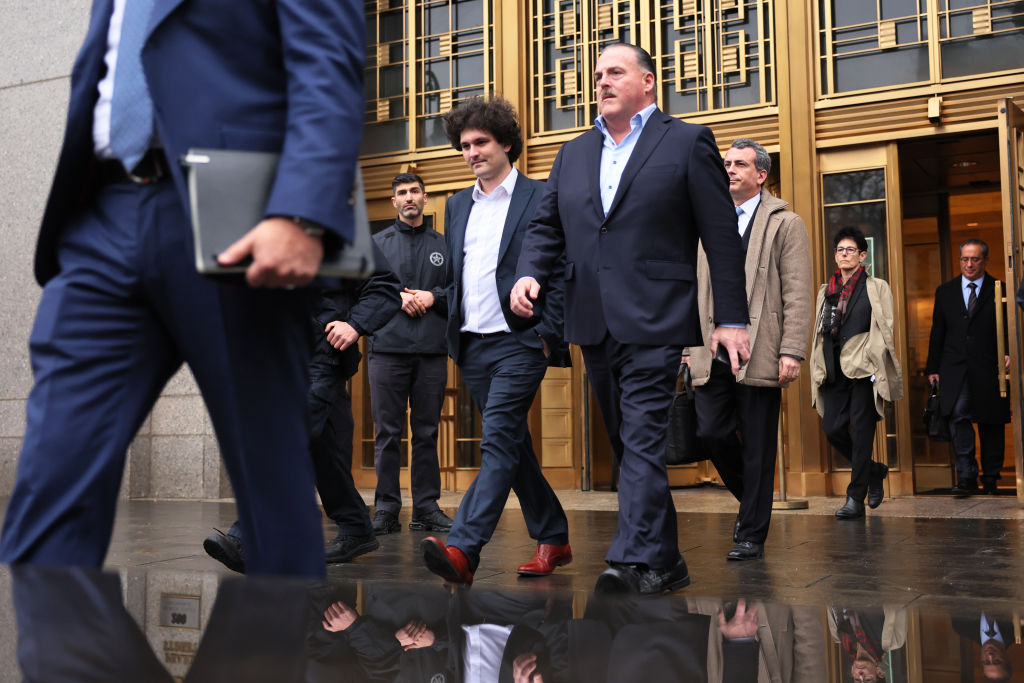Former FTX engineering director Nishad Singh called the spending habits of his former business partner “excessive” and “flashy” as he took to the stand Monday in the third week of the criminal trial of FTX founder and former CEO Sam Bankman-Fried.
Along with several other executives of the collapsed crypto exchange FTX, Singh pleaded guilty to multiple criminal charges including fraud and campaign finance law violations in relation to the collapse and has been cooperating with the government. The prosecution hope his testimony will demonstrate Bankman-Fried ran both FTX and its sister company Alameda Research, a crypto trading firm he founded, and is responsible for misusing billions of dollars in FTX customer funds to prop up Alameda Research.
Singh’s testimony is expected to bolster similar claims made in the past two weeks by the prosecution’s “star” witness, Alameda Research’s co-CEO Caroline Ellison, as well as FTX and Alameda co-founder Gary Wang.
“SBF would unilaterally spend Alameda’s money,” Singh told the jury, according to a live blog of the trial from court reporting organization Inner City Press.
Singh initially joined Alameda Research as a software engineer before moving to FTX and becoming its head of engineering. He met Bankman-Fried through his friendship with his brother Gabe Bankman-Fried.
“Sam is a formidable character — I came to distrust him,” said Singh, telling the jury how he did not agree with Bankman-Fried’s excessive spending.
“I’d complain about the excess & flashiness which I found different that what we were building the company for,” Singh said. “He’d say I didn’t understand, he was out there interacting with people. I thought we were fleeced for US$20 million, he said I was sowing doubt.”
Starstruck
Bankman-Fried’s differentiating factor compared to the other co-founders was that he did the endorsement deals, Singh said. Singh walked the jury through some of FTX’s many prominent partnerships and relationships including with NBA superstar Steph Curry and comedian Larry David for the exchange’s memorable Super Bowl ad. The total endorsement spend amounted to around US$1.3 billion, he said.
Bankman-Fried splurged not only on celebrities, but also on insiders. Singh described reviewing a term sheet that would provide former Hollywood agent Michael Kives and colleague Bryan Baum millions in bonuses as well as a billion dollar investment in their VC firm K5.
“I asked that it be done with Sam’s money and not FTX’s money,” Singh said. But Bankman-Fried told Singh the deal was “basically” already done, he said.
The attraction to K5 came from its connections. Bankman-Fried was impressed by Kives star studded guest list at a Super Bowl party featuring former U.S. presidential candidate Hilary Clinton and actor Leonardo DiCaprio, Singh said.
“Late in the game”
While Singh disagreed with Bankman-Fried’s excessive spending, he only found out about Alameda Research’s use of over US$13 billion in FTX customer funds when the team discussed closing down Alameda in September last year. He said he was “aware late in the game.”
“Gary said Alameda was borrowing US$13 billion from FTX,” Singh said. “I was hoping I’d misunderstood. FTX itself didn’t have that much money.”
Still, Bankman-Fried continued to pursue investment deals as well as fundraise for FTX, including the potential purchase of messaging service Telegram for US$120 million. Singh was “nervous” about the funds coming from customers, he said.
“I was upset at the endorsement deals, it was a billion dollars,” Singh said. “I said this is crazy, cut this. He said he didn’t think these were bad spends. I pointed at a couple. He said he agreed, but that cutting would cost 70% of seeing them through.”
Funds from Alameda also went toward political donations and were coordinated through a Signal chat called “Donations Processing,” Singh said. This group included Gabe Bankman-Fried, who ran Guarding Against Pandemics, a nonprofit advocacy group.
The defense strategy
The defense expects to spend four to five hours tomorrow on the cross examination. They proposed a half day tomorrow to focus on issues surrounding Bankman-Fried’s prescription of Adderall. On Sunday night, they requested help from the judge, via a letter, in getting Bankman-Fried access to his prescribed dose of Adderall during trial hours due to the fact he is struggling “to concentrate to the level he ordinarily would.”
The letter hinted that Bankman-Fried might take the stand in the trial, but the lack of access to medication is making it difficult for the defense in deciding how to proceed as “he will not be able to meaningfully participate in the presentation of the defense case” with the current dosage.

